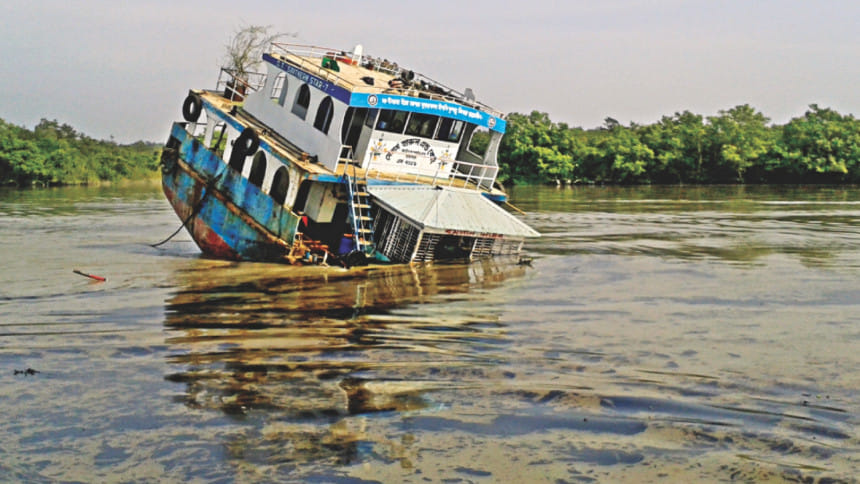Better late than never

Environmentalist must have been happy to see the news of ban imposed on Shela river route published in The Daily Star on March 22, 2016. The decision was taken after a coal-laden vessel sank in the river. Many readers would still be able to recall catastrophic effects when an oil tanker sank in the river on December 9, 2014. There had earlier been a month-long ban though it was lifted ignoring the protest of forest department. It is better banning late than never. Will the ban on operation of all vessels in the Shela River last though?
Shela River has been a dolphin sanctuary in the Sundarbans and there are legitimate concerns regarding bio-diversity of Sunderbans, the largest mangrove forest. However, there are critical areas requiring immediate attention in the north-east as well. Environmentalist recently called on the government to take immediate steps to make all forest areas, including Ratargul swamp forest canal, free from encroachers and pollution as the news got published in The Daily Star (February 23, 2016). The fundamental right to life guaranteed in the Constitution of Bangladesh (Articles 31 and 32) has been expanded to include anything that affects life, public health, and safety. This also includes, “the enjoyment of pollution free water and air, improvement of public health by creating and sustaining conditions congenial to good health and ensuring quality of life consistent with human dignity”.
Supporting legislations are in place and the Bangladesh Environment Conservation Act, 1995 gives the Director General (DG) of the Ministry of Environment and Forest the authority to enforce environmental laws. The authority enables DG to deal with the need for pollution control and other issues. The Act was strengthened by the 1997 Environment Conservation Rules, which provide the regulatory framework for environmental management in Bangladesh.
News of another ravagedtourist location in the north-east got published some months ago in The Daily Star (December 7, 2015). It delineated how Jaflong, a popular tourist destination with a river and hills has been turn into a mess due to unplanned commercial activities. Through Public Interest Litigation (PIL), Bangladesh Environmental Lawyers Association (BELA) only had been able to haltillegal mechanized stone extraction. Although High Court declared stone extraction using excavators or any other machine from the beds of three Sylhet rivers - Pyain, Dawki and Dhalai illegal; a section of unscrupulous businessmen, allegedly in collusion with the local administration and the ruling party men resumed their destructive activities. Mechanized stone extraction has virtually destroyed the beauty of Jaflong once known to be top tourist attraction place in Sylhet.
Will authority move to save bio-diversity and environment before it is too late?
The writer is a human rights worker.

 For all latest news, follow The Daily Star's Google News channel.
For all latest news, follow The Daily Star's Google News channel. 



Comments